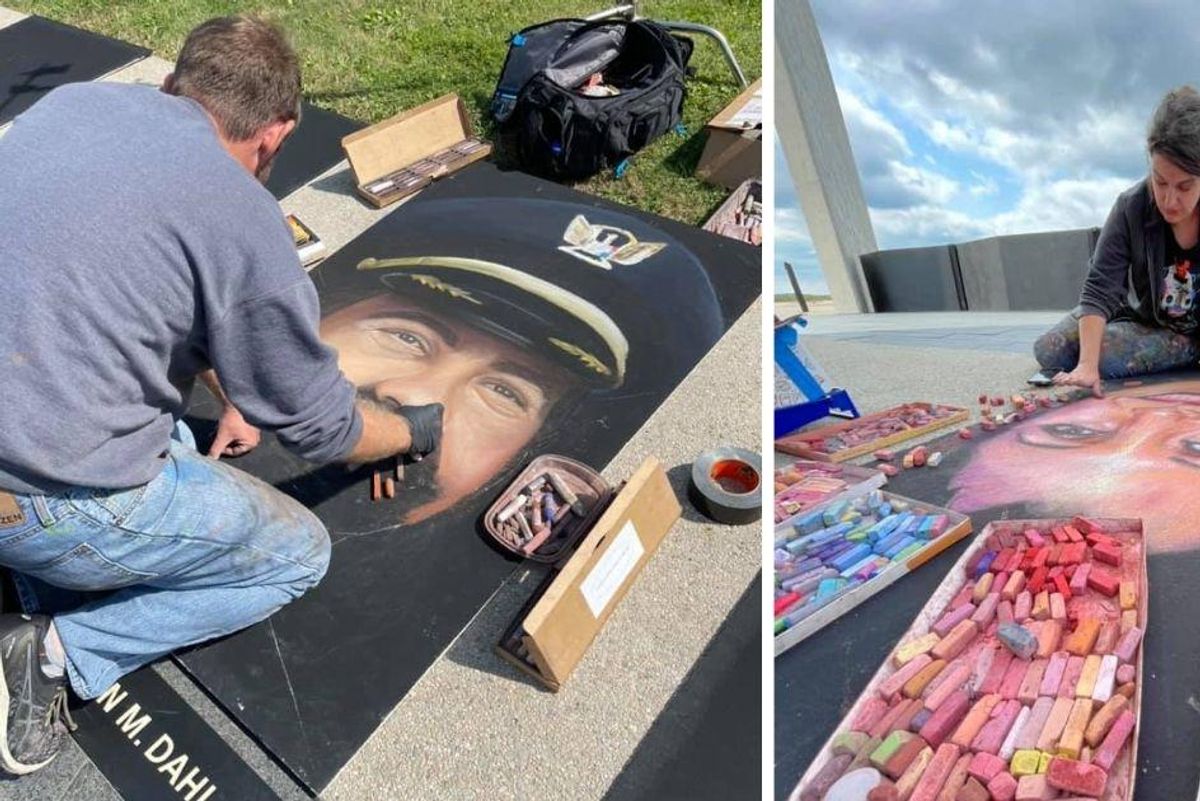Artists made these 40 chalk portraits honoring each passenger and crew member of Flight 93
September 11, 2021 marks the twentieth anniversary of the 9/11 terrorist attacks. Two decades, yet in many ways it still feels like yesterday.
We'll never know how much worse the attack could have been, how many more buildings would have been hit if flights had not been grounded after two planes hit the World Trade Center and another hit the Pentagon. But we do know that the heroic acts of passengers and crew members on Flight 93 prevented one attack, likely on the U.S. Capitol or the White House.
After learning about the attacks in New York, passengers and crew aboard Flight 93 realized they were part of a planned attack and took matters into their own hands. A group of them stormed the cockpit and foiled the plan. The terrorists ended up crashing the plane in a rural area of Westmoreland County, Pennsylvania, east of Pittsburgh. No one survived the crash.
To honor those on board Flight 93, Pittsburgh-based chalk artist Erik Greenawalt (also known as The Chalking Dad) and a team of artists are creating chalk portraits of each passenger and crew member at the Flight 93 National Memorial site.
The Flight 93 National Memorial shared photos of some of the portraits in progress on Wednesday, and they are stunning.
The 10 artists are using photos from the National Parks Service to create the portraits on 3-foot by 5-foot charcoal-covered canvases, which can be moved under cover if inclement weather hits. Visitors to the memorial can watch the artists work while they tour the grounds.
"I think it gives people who walk by a chance to stop and sort of absorb a little bit more of who they were—to see them as individuals," artist Shelley Brenner told the Pittsburgh Post-Gazette. "They were people with families, neighborhoods, their own lives."
For those who knew the passengers and crew personally, the portraits honoring their loved ones are particularly mpactful.
Art is a powerful tool for creating a collective experience, so a live art installation that commemorates the 40 individuals whose lives were lost while stopping a terrorist attack feels like a fitting tribute.
Thank you, artists, for always helping us process our emotions and experiences in the most beautiful way possible.
- For these parents who lost their daughter on 9/11, life couldn't stop ... ›
- Paul Veneto is pushing a bar cart 200 miles for 9/11 anniversary ... ›
- A new documentary follows Jon Stewart's relentless, decade-long ... ›

